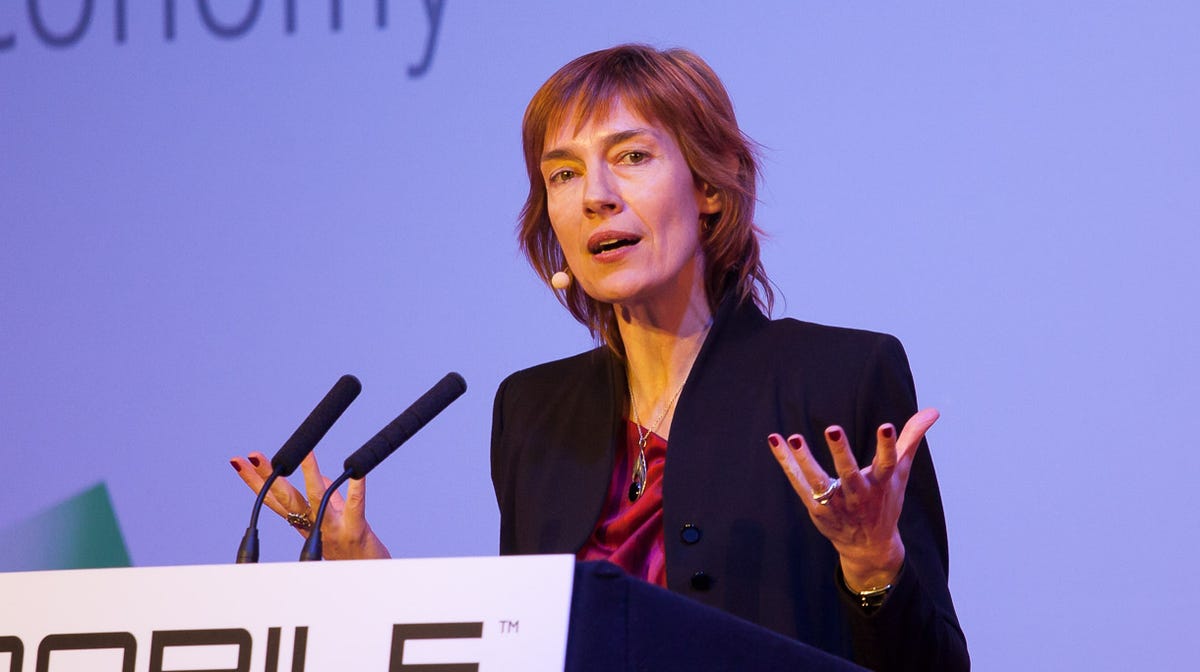International barriers in the telecommunications industry such as roaming fees are hurting consumers and should be eliminated within a year, a top European Commission official said today.
“I want you to be able to go back to your constituents and say that you were able to end mobile roaming costs,” said Neelie Kroes, the EC vice president in charge of its digital agenda, in a speech to members of a European Parliament committee on Thursday. “Whether they need it for travel, for trade, or for transactions — our people need this reform.”
With roaming fees, the costs of phone calls, text messages, and Internet data transfers can soar when people leave their home country and use other carriers’ mobile networks. It’s not a big issue in the United States, where foreign travel is unusual for most people’s daily lives.
But it’s a different matter in Europe, where countries are smaller and are linked by the European Union’s economic ties, and Kroes said the EC’s earlier action to lower roaming fees isn’t enough.
A unified telecommunications market could be tough to achieve. The market is balkanized with many countries and many network operators, and carriers point to regulatory barriers such as consolidation obstacles and spectrum fragmentation that makes it hard for them to work across borders. Roaming agreements today typically are hammered one by one, a laborious task given the combinations of carriers and countries involved.
But Kroes thinks it can be done within 12 months.
“I want to channel your knowledge and passion into the legislation needed to deliver a real single market,” she said. “It is my belief that we can deliver such a package — this full, final, package — around Easter 2014. Imagine that.”
The European mobile market once was more unified, with standards such as GSM making it easier for handset makers and network equipment manufacturers to work across countries. But the GSMA, the industry group formed around that standard, said in a report Wednesday that Europe’s mobile networks have fallen behind those in the United States.
“The very sobering reality is that Europe has lost its edge in mobile and is significantly underperforming other advanced economies, including the United States,” GSMA Director General Anne Bouverot said in a statement.


Stephen Shankland/CNET
The report cited several areas where the U.S. has leapfrogged Europe:
- On average, U.S. consumers spend more each month than their EU counterparts and use mobile services much more intensely, consuming five times more voice minutes and nearly twice as much data.
- The U.S. has opened up a large lead in deployment of next-generation technologies; by the end of 2013, nearly 20 percent of U.S. connections will be on LTE networks, compared to less than 2 percent in the EU.
- Average mobile data connection speeds in the U.S. are now 75 percent faster than those in Europe and by 2017 will be more than twice as fast.
- Mobile investment in the United States has outpaced that in Europe, with capital expenditure in the U.S. growing by 70 percent since 2007 while declining in the EU, and the gap continues to widen.
The carriers at the GSMA might not be eager to hear Kroes talk about regulatory reform that would cut into their roaming revenue, but calls for regulatory reform to unify cross-border mobile markets are likely music to the industry’s ears.
“EU regulatory policies have resulted in a fragmented market structure that prevents operators from capturing beneficial economies of scale and scope and inhibits the growth of the mobile ecosystem,” said Jeffrey Eisenach, managing director at Navigant Economics, which helped write the GSMA study.
In her speech, Kroes also called for actions in the areas of Net neutrality and cybersecurity in her speech to the Internal Market and Consumer Protection Committee.
“I want you to be able to say that you saved [citizens’] right to access the open Internet, by guaranteeing Net neutrality,” she said. “I want you to be able to say we took real action on cybercrime and other threats.”



